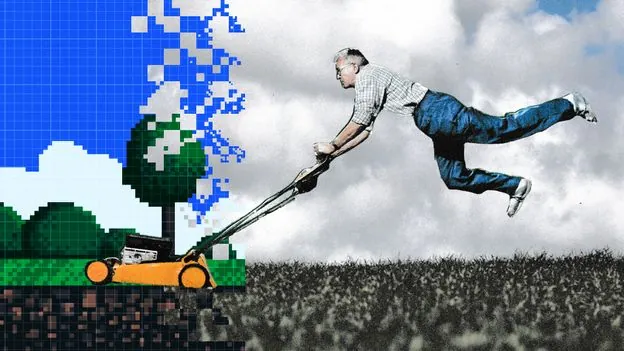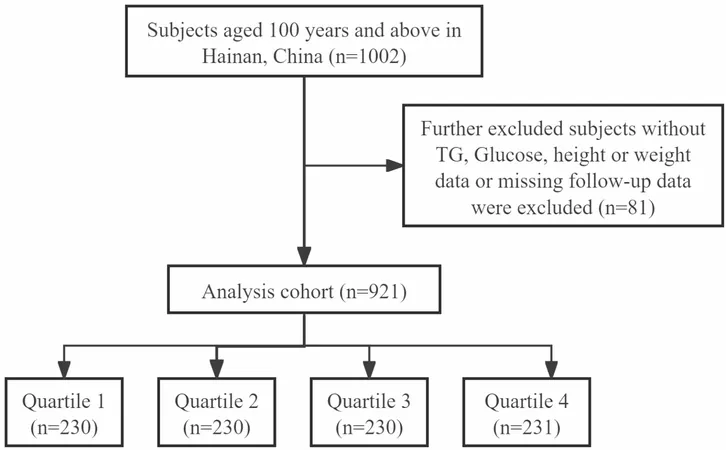
The Surreal Intersection of Gaming and Reality: Unveiling Game Transfer Phenomenon
2025-04-10
Author: Sarah
When Gaming Crosses Into Daily Life
Video games have taken center stage as the most popular form of entertainment globally, but what happens when they start influencing our real lives in strange and unsettling ways? For some gamers, the lines between screens and reality can blur in alarming ways.
A Disturbing Experience
Take Christian Dines, a sustainability advisor from the U.S. His hands began to twitch as if still gripping a controller, and he felt an overwhelming urge to collect real objects like they were power-ups from his game. After a week of intense gaming, he realized these virtual experiences began to seep into his daily life. Dines recounted, "It was unnerving to feel distracted by a screen when I wasn't even in front of it."
What is Game Transfer Phenomenon?
This peculiar experience is known as Game Transfer Phenomenon (GTP), so named by psychologist Angelica Ortiz de Gortari. During her research, she discovered her perception altered while shopping, as she imagined viewing products through a rifle scope. GTP, she explains, forces gamers to filter the real world through the lens of their virtual adventures.
Effects and Symptoms
GTP is not merely a harmless quirk. About half of gamers experiencing it report feelings of distress, memory lapses, or confusion. While many endure the phenomenon silently, fearing judgment, it can lead to involuntary behaviors or reactions that might spill into real-life actions, such as acting out game scenarios.
Research Findings
In her largest study to date with 623 participants, Ortiz de Gortari found that 82% to 96% experienced GTP in some form. Interestingly, the more realistic the game, the stronger the connection to reality becomes, raising concerns about the mental processes at play.
Coping Strategies
Gaming industry producer Ali Farha emphasizes the need for balance. Taking regular breaks after extended sessions can mitigate GTP symptoms, particularly for those who game beyond four hours. "It’s essential to decompress afterward," he advises.
Unraveling the Enigma
Despite the boundaries GTP pushes, research has yet to fully explain why these overlaps in perception occur. Some theories suggest it may stem from low working memory capacity, where gamers struggle to separate virtual from real experiences. Counterintuitively, long gaming sessions can lead to unexpected echoes of gameplay in daily life.
Raising Awareness in the Gaming Community
As games grow more immersive, the potential for GTP to affect players escalates. Ortiz de Gortari urges game developers to understand their products’ impact, especially on younger audiences, and to take proactive steps in addressing these phenomena.
The Other Side of Gaming
Contrary to fears, research by Nick Ballou suggests that most gamers find relief and community in their hobby rather than harm. Most don't experience detrimental mental health effects; instead, they find gaming to be a source of identity and achievement.
Conclusion: An Uncharted Territory
GTP remains a fascinating phenomenon needing further exploration. As gaming technology evolves, understanding how it shapes our psychology is crucial. Ortiz de Gortari states, "We have enough evidence that GTP is happening; now we need to uncover how and why." The world of gaming has unlocked countless adventures, but what lies at the intersection of fun and the uncanny deserves our serious attention.



 Brasil (PT)
Brasil (PT)
 Canada (EN)
Canada (EN)
 Chile (ES)
Chile (ES)
 Česko (CS)
Česko (CS)
 대한민국 (KO)
대한민국 (KO)
 España (ES)
España (ES)
 France (FR)
France (FR)
 Hong Kong (EN)
Hong Kong (EN)
 Italia (IT)
Italia (IT)
 日本 (JA)
日本 (JA)
 Magyarország (HU)
Magyarország (HU)
 Norge (NO)
Norge (NO)
 Polska (PL)
Polska (PL)
 Schweiz (DE)
Schweiz (DE)
 Singapore (EN)
Singapore (EN)
 Sverige (SV)
Sverige (SV)
 Suomi (FI)
Suomi (FI)
 Türkiye (TR)
Türkiye (TR)
 الإمارات العربية المتحدة (AR)
الإمارات العربية المتحدة (AR)